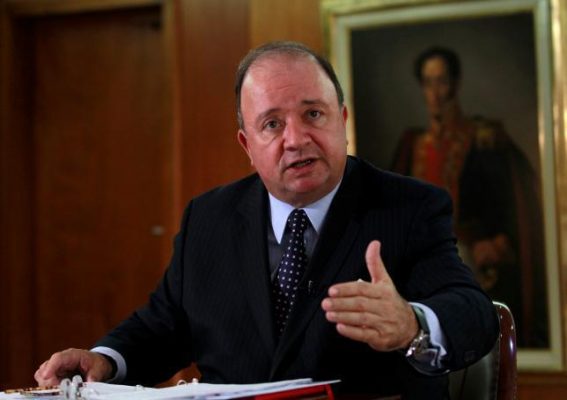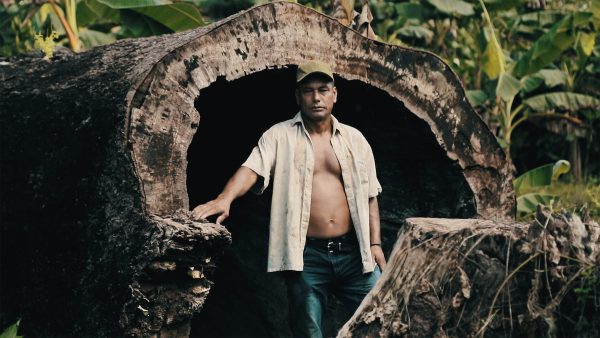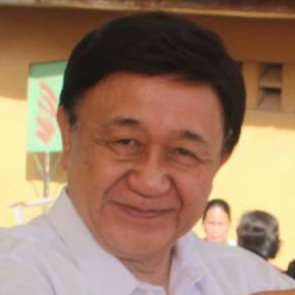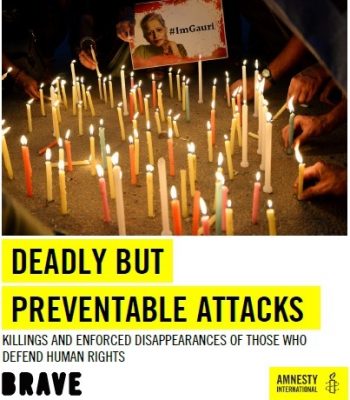
The recent interview with Colombian Minister of Defence Luis Carlos Villegas, in which he said that the vast majority of killings of human rights defenders in Colombia were due to “problems in their personal lives, such as quarrels with their neighbours or romantic partners or their involvement in illegal economic activity is a denial of reality and amounts to nothing less than an calculated smear campaign against human rights defenders.
Sr Villegas has also stated that apart from killings carried out by members of the ELN and the FARC, only 50 community leaders and HRDs were killed in 2017.
The Minister’s statement is a convenient work of fiction which bears no relation to the harsh reality of life for HRDs in Colombia. The state’s own Human Rights Ombudsman has stated that 204 community leaders and HRDs have been killed in the last two years, while the Attorney General, Nestor Humberto Martinez, has identified “systemic criminality” in the assassination of social leaders — something the government has always denied, despite the evidence presented in numerous human-rights reports.
In its Annual Report for 2016 Front Line Defenders reported 86 killings of HRDs, the vast majority of which have never been fully investigated. In its report for the first six months of 2017, Front Line Defenders partner organisation, Programa Somos Defensores, documented 52 cases of killings of HRDs in the first six months alone of 2017. The Front Line Defenders Annual Report for 2017 which will be launched in January 2018 is likely to report a similar level of lethal violence.
While the Minister maintains the official line that there is no pattern of organised paramilitary activity the facts tell a different story. On 31 July 2017, Front Line Defenders reported a fresh wave of threats from members of Autodefensas Gaitanistas de Colombia (AGC), a paramilitary group operating in the municipality of Barrancabermeja, among others. The group circulated a pamphlet naming several rights groups and five defenders known for their work in the Colombian peace process.
The paramilitary group accused them of colluding with the government and the Farc rebels “against the interests of the Colombian people.” AGC stated that their communities would soon find them “chopped up in plastic bags.” Lest there be doubt about the possibility of gruesome attacks, the group added, “for your knowledge this is not a threat, it is a declaration of war. We are already in the area. You and your family know that.”
The Minister’s statement is a political smokescreen designed to relieve the pressure on the government from the international community to deal with the issue of the killings of HRDs.
“Front Line Defenders welcomes the fact that the State Prosecutor has initiated an investigation into the Minister’s statement but believes that the government of Colombia must immediately disassociate itself from the Minister’s comments and reiterate it’s full commitment to human rights and the protection of human rights defenders, as an integral part of the peace process”. said Andrew Anderson, Executive Director of Front Line Defenders.
At a time when the Colombian peace process is entering a critical phase, one of the key elements in guaranteeing the successful future implementation of the agreement is the restoration of trust in the institutions of state and in particular the criminal justice system and the security apparatus.
“At best the Minister’s statement shows a lack of understanding of the risks faced by human rights defenders in carrying out their peaceful human rights work. At worst it shows a cynical willingness to misrepresent the reality in which HRDs are attacked and killed on an almost daily basis”, said Anderson.
The prevailing climate of almost absolute impunity for these attacks on human rights defenders continues because of the lack of political will to address the systemic flaws in the state’s response to endemic violence, which the Minister, as the person in charge of the armed forces of the state, has a direct responsibility to address. Minister Villegas no longer has any credibility.
Andrew Anderson is Executive Director of Front Line Defenders www.frontlinedefenders.org

 :
:



